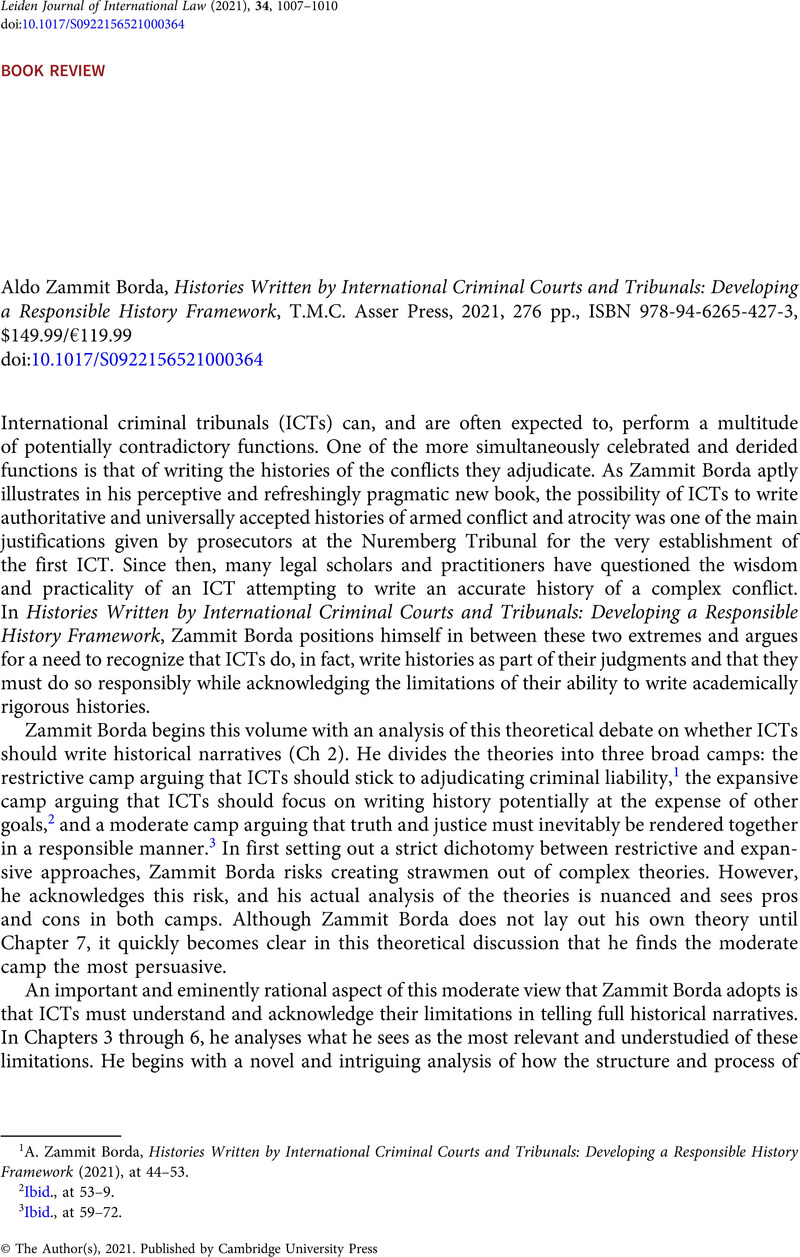No CrossRef data available.
Published online by Cambridge University Press: 18 August 2021

This work was partly supported by the Research Council of Norway through its Centres of Excellence funding scheme (project number 223274 - PluriCourts Centre) and the FRIPRO Young Research Talents (project number 274946 - State Consent to International Jurisdiction, Prof. dr. Freya Baetens).
1 A. Zammit Borda, Histories Written by International Criminal Courts and Tribunals: Developing a Responsible History Framework (2021), at 44–53.
2 Ibid., at 53–9.
3 Ibid., at 59–72.
4 Ibid., at 136–40.
5 One major potential difference between historical truths and ‘trial’ truths is that historians embrace and explore ambiguity whereas judges and lawyers attempt to arrive at one true and certain narrative that can be arrived at ‘beyond a reasonable doubt’. See R. J. Evans, In Defence of History (2001); G. Simpson, ‘Linear Law: The History of International Criminal Law’, in C. Schwöbel (ed.), Critical Approaches to International Criminal Law (2015).
6 See, e.g., N. Wood, Vectors of Memory: Legacies of Trauma in Postwar Europe (1999); C. Gevers, ‘International Criminal Law and Individualism’, in Schwöbel, ibid; R. A. Wilson, Writing History in International Criminal Trials (2011); V. Petrovic, The Emergence of Historical Forensic Expertise: Clio Takes the Stand (2016).
7 Zammit Borda, supra note 1, at 152–78.
8 Ibid., at 159–66.
9 Ibid.
10 Ibid., at 144–52.
11 Ibid. E.g., the debate between post-modernist and conventional historians on whether historians can truly find any objective truths. Compare K. Jenkins, ‘A Postmodern Reply to Perez Zagorin’, (2000) 39 History and Theory 181 with Evans, supra note 2.
12 Zammit Borda, supra note 1, at 178–9.
13 Ibid., at 179–81.
14 Ibid., at 180–4.
15 Ibid., at 194–7.
16 Ibid., at 198–9.
17 Ibid., at 197–8.
18 Ibid., at 206–8.
19 Ibid., at 208–31.
20 Ibid., at 231–5.
21 Ibid., at 235–8.